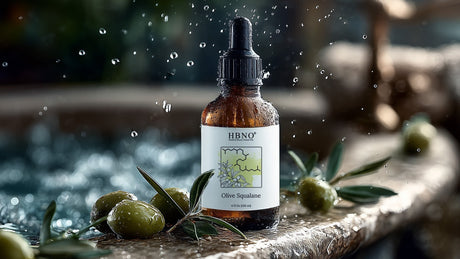In a time when wellness is a top priority, organic essential oils are gaining traction for their natural, therapeutic benefits. Understanding the advantages of organic oils-such as their purity, sustainability, and holistic effects-highlights why they are central to today's shift toward cleaner living.
With the market projected to grow by USD 2.97 billion by 2028 at a CAGR of 8.1%, these oils are increasingly used in aromatherapy, personal care and cosmetics, and even food flavoring products.
The Rise of the Organic Essential Oils Market
The increasing awareness surrounding health and wellness has significantly contributed to the growth of the organic essential oil market. Consumers are increasingly looking for natural, chemical-free alternatives to conventional products, driven by a desire to minimize exposure to synthetic compounds that may cause harm over time. Organic essential oils, derived from plants without the use of pesticides or synthetic fertilizers, offer a natural solution to those seeking holistic health benefits.

Applications of Organic Essential Oils in Key Industries
The organic essential oil market is highly diversified, with products being used across multiple industries. Their inherent therapeutic properties and natural fragrance oils make them a popular choice in areas such as aromatherapy, cosmetics, personal care, and food and beverage production. Here's a closer look at how organic essential oils are being utilized in these sectors:
1. Aromatherapy
Aromatherapy is one of the largest consumers of organic essential oils, and for good reason. This holistic treatment leverages the aromatic compounds found in essential oils to promote physical and mental well-being. Popular organic oils such as lavender essential oil, eucalyptus globulus essential oil, and tea tree essential oil may be used for stress relief, sleep enhancement, and immune system support.
ts, while peppermint oil helps in relieving headaches and improving focus.
2. Cosmetics and Personal Care
The cosmetics and personal care industries have been increasingly integrating organic essential oils into their formulations. Their natural preservative qualities, pleasant fragrances, and therapeutic benefits make them highly desirable in products such as body washes, shampoos and conditioners, face creams, and lotions.
3. Food and Beverage
In the food industry, organic essential oils are used for both flavoring and fragrancing. They add depth and complexity to a variety of dishes and beverages. Oils such as basil sweet essential oil organic, lemon essential oil organic, and peppermint essential oil organic are frequently used in culinary creations, from sauces and dressings to desserts and cocktails. Their potent flavor profiles make them popular in enhancing the taste of dishes while contributing to a healthier lifestyle.
4. Household Products
Organic essential oils have also found a place in the formulation of home care products. Natural cleaning solutions, air fresheners, and laundry detergents are increasingly incorporating these oils for their antibacterial properties and pleasant scents. The ability of organic essential oils to act as natural disinfectants and deodorizers adds value to these everyday products.

Challenges Facing the Organic Essential Oils Market
Despite the rapid growth of the organic essential oil market it faces certain challenges. One of the primary issues is the rise in counterfeit products, which not only mislead consumers but can also be dangerous due to the use of synthetic ingredients. These fake oils lack the therapeutic benefits of genuine organic essential oils and can cause allergic reactions or other adverse health effects.
To combat this issue, regulatory bodies are implementing stricter guidelines to ensure that only authentic organic essential oils reach consumers. Certification programs, such as USDA Organic and Ecocert, help to verify the authenticity of these oils, providing consumers with confidence in their purchase.
The Future of the Organic Essential Oils Market
Looking ahead, the future of organic essential oil is bright. As more consumers prioritize natural wellness and sustainability, the demand for organic essential oils is expected to continue growing. New applications for these oils are constantly being explored, from eco-friendly cleaning solutions to innovative food and beverage products.
The trend toward transparency and ethical sourcing is also driving growth in this market. Consumers are increasingly interested in knowing where their products come from and how they are made. Companies that emphasize sustainability, fair trade, and organic farming practices are likely to see increased loyalty from eco-conscious consumers.
Conclusion
The organic essential oils market is growing rapidly, driven by rising interest in health, wellness, and natural living. Used in aromatherapy, cosmetics, personal care, and food, these oils meet the needs of today's health-conscious consumers.
Brands like HBNO bulk are leading the way with high-quality, sustainable products. Choosing organic essential oils supports holistic wellness while promoting eco-friendly practices-ensuring this market remains central to the global wellness movement.




